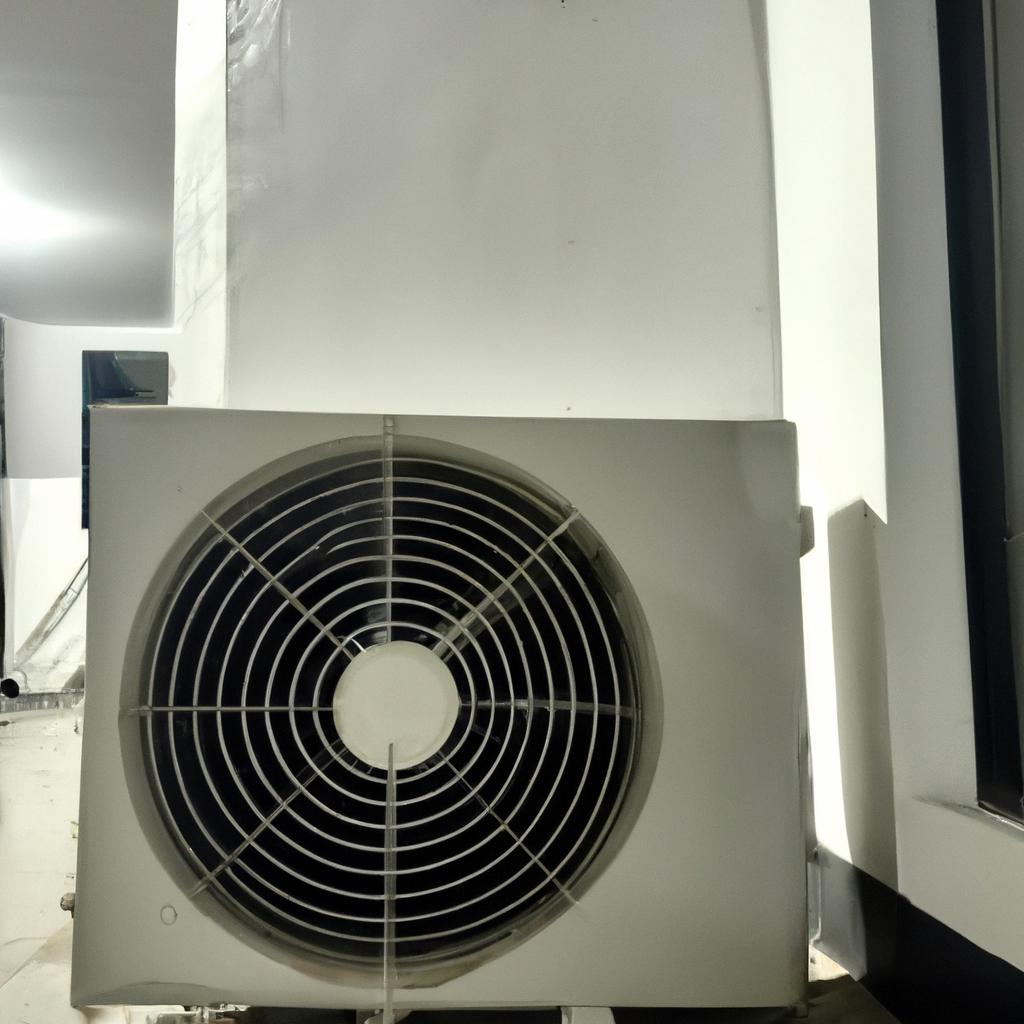Are you considering purchasing a 10000 watt generator to power your home during an outage?
A 10000-watt generator can potentially run a central air conditioning system, but it depends on the specific power requirements of your unit. To determine if your generator can handle the load, you need to consider the following factors:
1. Check the power requirements of your central air conditioner: Look for the unit’s data plate or consult the owner’s manual to find the power consumption in watts or amps. Typically, central air conditioners require between 3,000 to 5,000 watts to operate, but this can vary depending on the size and efficiency of the system.
2. Starting and running wattage: Air conditioners have a higher starting wattage (also known as surge wattage) than running wattage. Ensure that your generator can handle the starting wattage, which can be up to three times the running wattage.
3. Additional loads: Consider other appliances or devices that will be running simultaneously with the central air conditioner. The total power consumption of all devices should not exceed the generator’s capacity.
4. Generator efficiency: Keep in mind that generators may not always run at their maximum rated capacity. It’s a good practice to operate a generator at 80% of its rated capacity to account for fluctuations in power demand and to prolong its lifespan.
In conclusion, a 10000-watt generator may be able to run a central air conditioner, but you need to verify the specific power requirements of your system and consider other factors such as additional loads and generator efficiency.
If so, one of the most common questions that comes up is whether or not a generator of this size can run your central air conditioning unit.

The answer to this question isn’t as straightforward as you might think. While a 10000 watt generator certainly has the potential to power a central air conditioning unit, there are several factors that come into play.
In this article, we’ll explore what those factors are and help you determine if a 10000 watt generator is sufficient for keeping your home cool during power outages. So, let’s dive in and explore the topic of whether or not a 10000 watt generator can run central air.
Overview Of A 10000 Watt Generator
A 10000 watt generator is a powerful machine that can provide electricity to various appliances and tools.
It is capable of producing enough power to run multiple devices at the same time, making it an ideal choice for backup power during emergencies or for outdoor activities such as camping.
With a generator this size, you can expect to run essential household appliances like refrigerators, freezers, lights, and even some power tools.
However, before attempting to connect your central air conditioner to a 10000 watt generator, it’s important to understand the power requirements of your AC unit.
Power Requirements For A Central Air Conditioner
Are you considering using a generator to power your central air conditioner? Before making any decisions, it’s important to understand the power requirements of your unit.
A 10000 watt generator may seem like it has enough power to run a central air conditioner, but it’s not always that simple. Central air conditioners require a significant amount of power to function properly.
The exact amount varies depending on the size and efficiency of your unit, but most residential central air conditioners require between 3000 and 5000 watts of power.
A 10000 watt generator may be able to handle this load, but it’s important to make sure you’re not overloading the generator or risking damage to your air conditioner.
In the next section, we’ll explore the pros and cons of using a generator for central air conditioning so you can make an informed decision about whether it’s right for you.
Pros And Cons Of Using A Generator For Central Air
So you’re considering using a generator to power your central air system. While it may seem like a viable option, there are some pros and cons to keep in mind.
On the positive side, using a generator can provide temporary relief during power outages or emergencies.
It can also be cost-effective compared to installing an alternative backup power source.
However, there are also drawbacks to consider.
Generators can be noisy and emit fumes, which could be unpleasant or even harmful if not properly ventilated.
Additionally, generators require fuel and regular maintenance, which adds to the overall cost.
Considering these pros and cons, it’s important to weigh your options before deciding whether a generator is right for your central air system.
But if you decide against using a generator, what are some alternatives?
To ensure uninterrupted cooling during power outages or emergencies without relying on a generator, there are other options available.
From battery-powered systems to solar panels with battery storage capabilities, there are several alternatives worth exploring.
Let’s take a closer look at these alternatives in the next section.
Alternatives To Using A Generator For Central Air
Although using a generator for central air has its benefits, there are also some drawbacks to consider.
One of the main concerns is the cost of fuel and maintenance, which can quickly add up over time.
Additionally, generators can be noisy and may not provide enough power to run larger HVAC systems.
Fortunately, there are alternative options available for keeping your home cool during power outages.
One option is to invest in a portable air conditioner or window unit that can be powered by a smaller generator or even solar panels.
Another option is to install a backup battery system that can provide enough power to run your central air for several hours until power is restored.
Whatever option you choose, it’s important to carefully weigh the pros and cons before making a decision.
Conclusion
In conclusion, a 10000 watt generator has the potential to run a central air conditioner. However, it is important to take into account the power requirements of your specific unit and make sure that your generator can handle it.
While using a generator for central air may seem like a convenient solution during power outages or in remote areas, there are also some drawbacks to consider.
One major drawback is the cost of running a generator for prolonged periods of time. Generators require fuel, which can add up quickly if you are running your central air frequently.
Additionally, generators can be noisy and emit fumes, which can be unpleasant or even dangerous if used improperly.
Fortunately, there are alternatives to using a generator for central air. These include investing in solar panels or battery backup systems, or simply using window units or fans instead of relying on central air conditioning.
Ultimately, the decision of whether to use a generator for central air should be based on your individual needs and circumstances.




